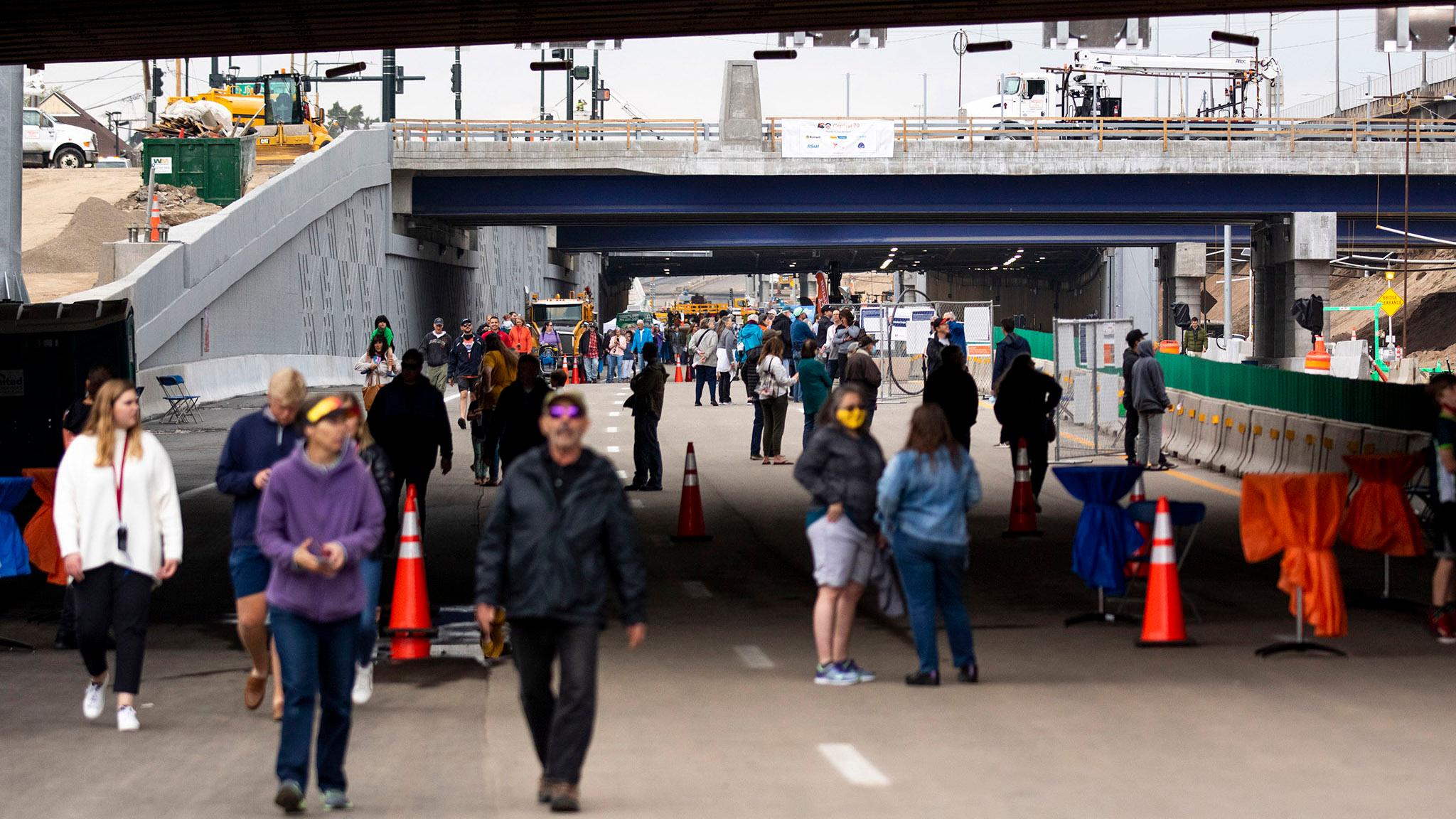Interstate 70 between I-270 and Washington Street in north Denver will shut down at 10 p.m. Friday, so get ready to detour if you're in the area this weekend.
When it reopens Monday morning at 5 a.m., drivers will no longer go over a viaduct that's towered over the Elyria-Swansea neighborhoods since the 1960s. All six lanes of traffic will instead drop into a new lowered section between Brighton and Colorado boulevards.
"I think it's awesome," Daisy Carrillo, a Denver resident who commutes to the neighborhood every day, said at a recent open house on the new road. "I just think that it's really interesting to be able to see everything that they've done so far."
The Colorado Department of Transportation and its contractors have done a lot in the last few years. Crews have excavated nearly 2 million cubic yards of dirt and laid a half million tons of asphalt.
Commuters like Carrillo are hoping for smoother travel on the new road.
"We're all driving on top of each other," she said of the existing highway.


The new lowered section, which includes a tunnel between Columbine and Clayton streets, will hold three lanes in each direction for now. CDOT spokeswoman Stacia Sellers said drivers shouldn't be alarmed by the new setup
"We know that there's new shiny things to see and it's totally a different environment," Sellers said. "But we just need traffic to continue flowing so we aren't causing any congestion, or worse, having any crashes."
Crews will start tearing down the old viaduct this summer so they can build another tunnel for future eastbound lanes. That should take about 14 months, she said.
At that point, the highway will be eight lanes across -- the two new lanes will be tolled -- with enough space to add another two toll lanes in the future. The highway carries more than 200,000 vehicles a day now -- and CDOT expects its capacity to eventually increase by 67 percent.
A four-acre park will cover the tunnel in an effort to reconnect neighborhoods the highway split more than five decades ago.


Ernest Martinez grew up in the neighborhood and remembers when the viaduct was built. He said it brought pollution and noise, and he wanted CDOT to tear down the highway completely.
"They never listen to the people here," Martinez said. "They were dead-set on putting it through here, one way or another."
Environmental and neighborhood groups filed lawsuits to block the project that were dismissed or settled. Now that the project is about two-thirds done, Martinez does see some benefit.
"Well, it is going to be a good thing for the neighborhood," he said. "It's going to cut down on noise. Unfortunately it's not going to cut down on pollution."
CDOT says its analysis shows that the project will meet all air quality standards set by the Environmental Protection agency.
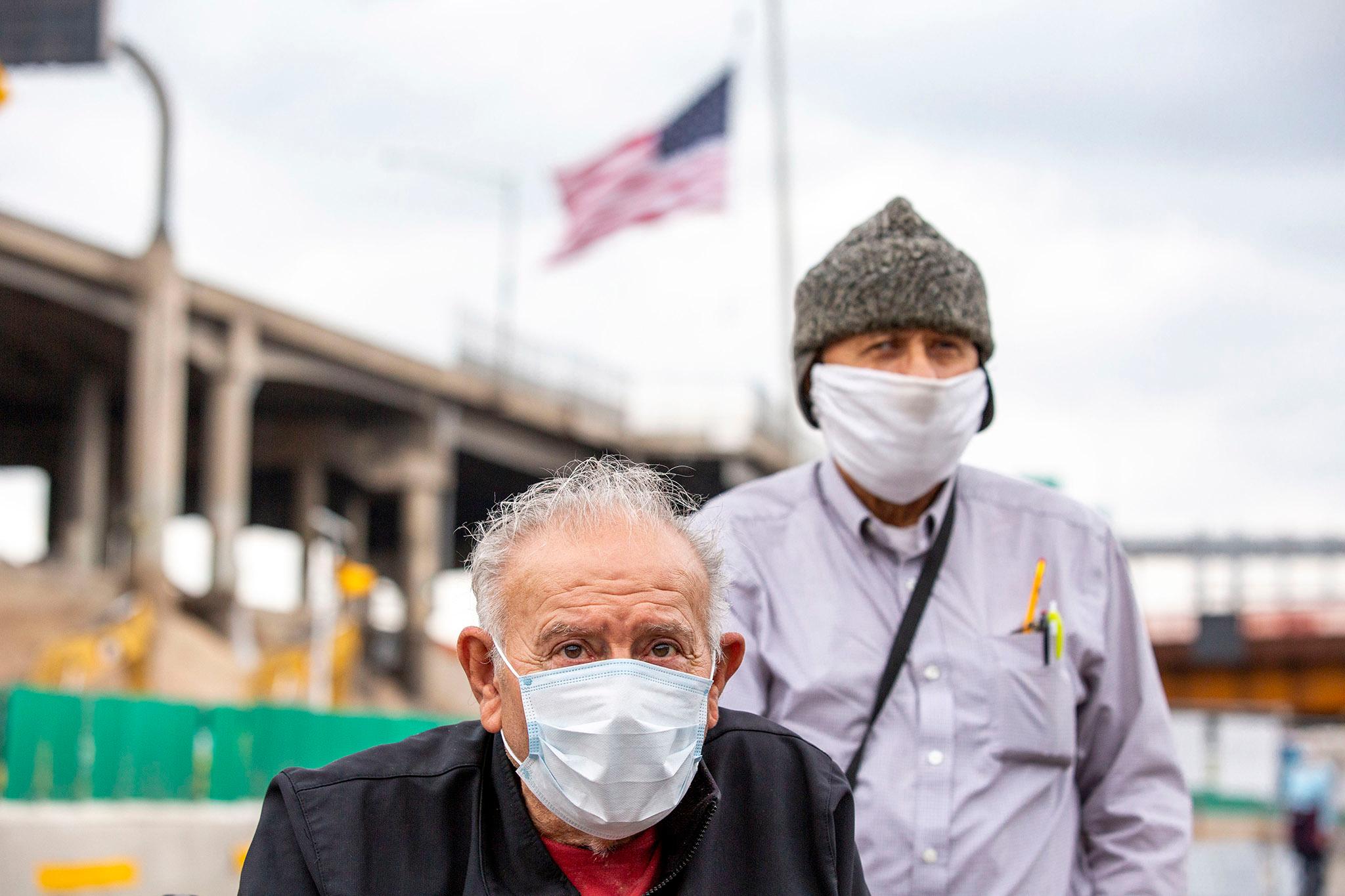
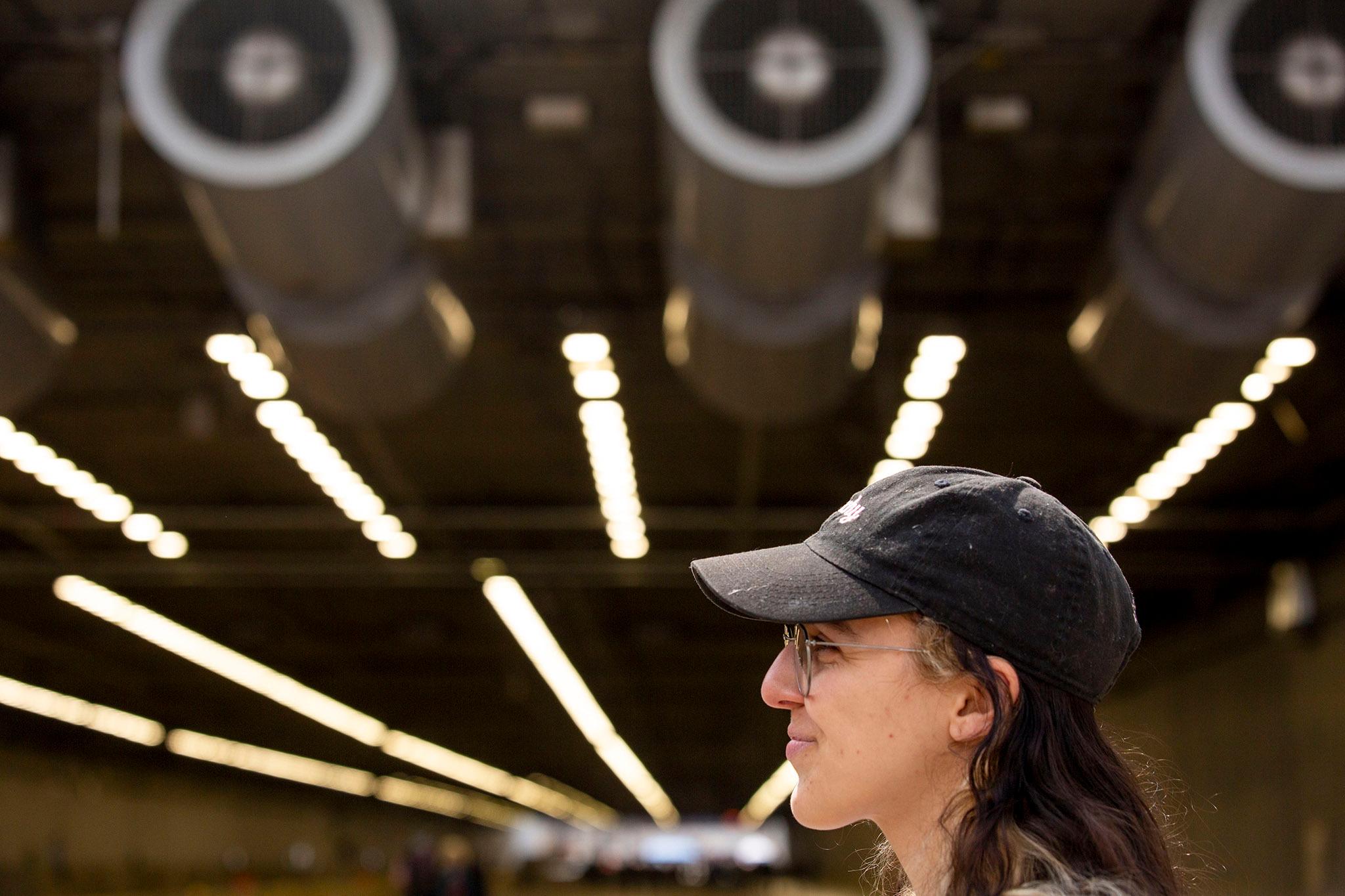
Ana Varela moved to Elyria in 2019 because, she said, she fell in love with the diversity of the neighborhood that's 82 percent Hispanic. Varela, who's also active in the Globeville Elyria-Swansea Coalition, said the demolition of more than 50 homes to allow for the highway's growth should not be forgotten.
"It does still mean that my neighbors, that I just met and have fallen in love with, have lost their neighbors, lost their friends," Varela said. "Sure, now they have homes in the suburbs. But they will never again find 100-year-old homes right next to Denver in an area where they had a lot of history."
But she also said that the new highway will be a benefit to the greater city, and added that some of the new connections across the highway could transform her neighborhood in a positive way.
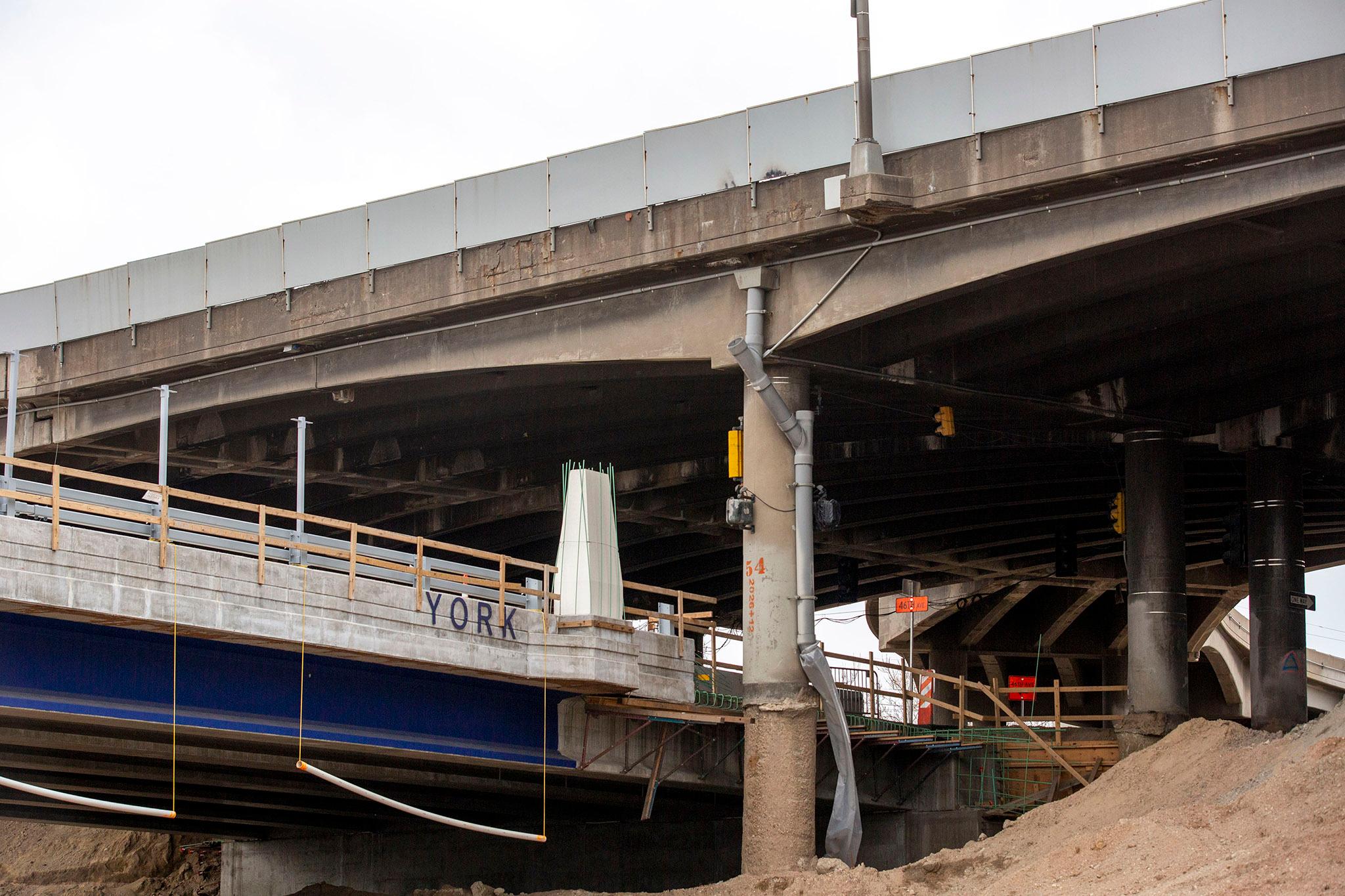
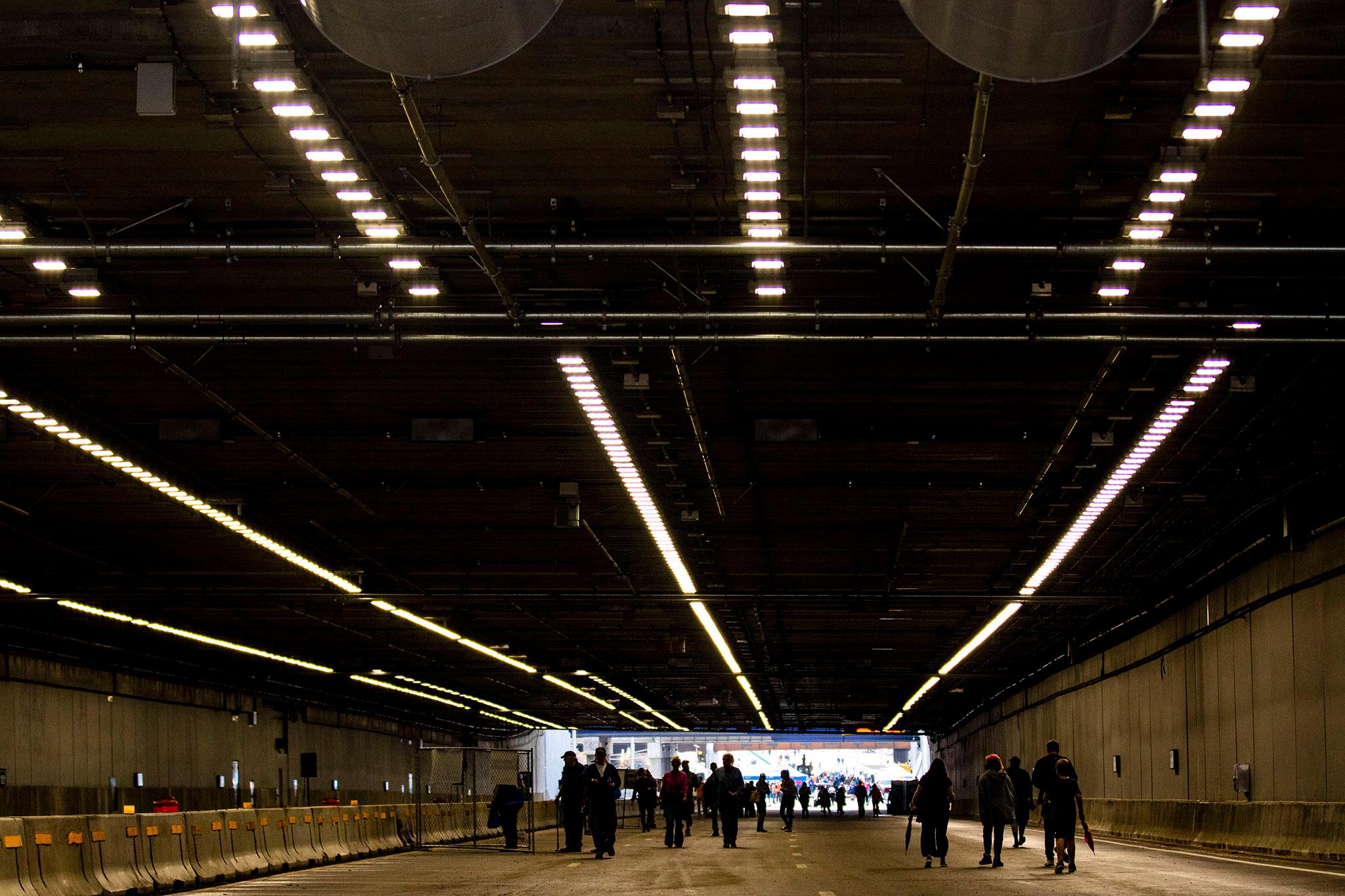
As the late afternoon sun illuminated the crumbling viaduct, Varela said she appreciated the opportunity to see it from where we spoke at the eastern mouth of the new tunnel.
"I won't ever see that in my skyline again," she said. "It's going to change a lot about the way I feel. And every time I drive down this highway, I'm going to say, 'hey, did you know I walked on that?' So it'll end up being a cool memory."

